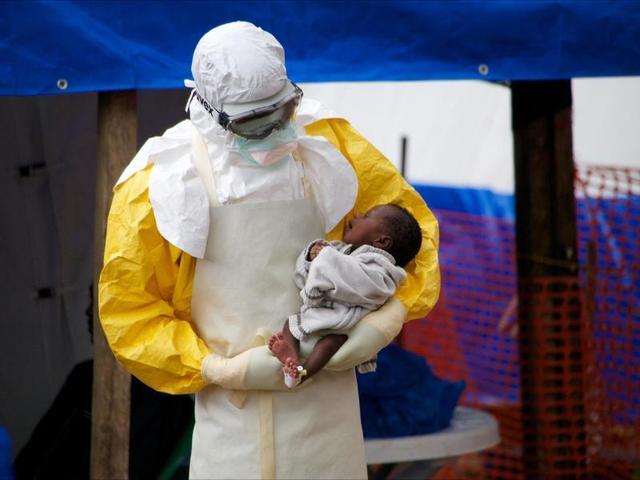In a striking case of perseverance that may be among the youngest instances of Ebola survival in the history of the disease, a two-week-old baby near Sierra Leone’s capital, Freetown, was declared Ebola-free after enduring the ravages of the illness since before birth.
The baby, who does not yet have a name, contracted Ebola from her mother, identified by the Awareness Times as Isatu Mansaray. Mansaray tested positive for Ebola while pregnant, shortly before entering labor, and gave birth to the baby while Ebola-positive. Doctors report that the baby was diagnosed with Ebola after her mother began breastfeeding her, potentially contracting the virus from her mother’s milk. Mansaray was also declared an official Ebola survivor this week.
The Hastings Treatment Center, which nursed the baby back to health, is one of the more successful Ebola treatment centers in the nation. The baby girl was among 41 Ebola survivors released this week, and not the only young child among them. The Awareness Times notes that two other children–two-month-old Abibatu Kamara and two year old Mohamed Turay–were declared Ebola survivors in the same group. The treatment center gave the Ebola survivors certificates of recognition and gifts before allowing them to return home.
The Hastings group, on the whole, is an exceptionally young coalition of survivors. Fourteen-year-old Hawanatu Turay told the Associated Press surviving Ebola brought her an immense sense of freedom. “I feel good because nothing hurts me anymore and I am feeling fine, I can do anything I want to do,” she said.
Doctors working in the area heralded the Hastings Treatment Center as a green shoot in a medical system that is near full collapse. “We are actually doing a good job here, we discharge, we treat patients and also do follow up treatment, not only treating them, but we also make sure that they have their full dose of combinations that they need,” a medical leader identified by the AP as Dr. Sankoh said. The discharges, he noted, are some of the only good news in Sierra Leone in some time.
Unlike Liberia, where the pace at which Ebola has been spreading appears to be diminishing somewhat, the outbreak is still accelerating in Sierra Leone. Much of this has to do with medical practices that make it difficult to contain contaminated material. This week, a report surfaced that ambulance drivers had been forcing symptomatic Ebola patients to change out of their sullied clothes before entering an ambulance. This has left contaminated materials spread throughout homes all over Freetown and adjoining areas, where others may enter and touch clothes tainted with Ebola-ridden bodily fluids and contract the virus. The government of Sierra Leone has also been accused of incorrectly tallying Ebola death numbers, counting individuals who have died in their homes as “missing,” instead, to reduce the official death count.

COMMENTS
Please let us know if you're having issues with commenting.